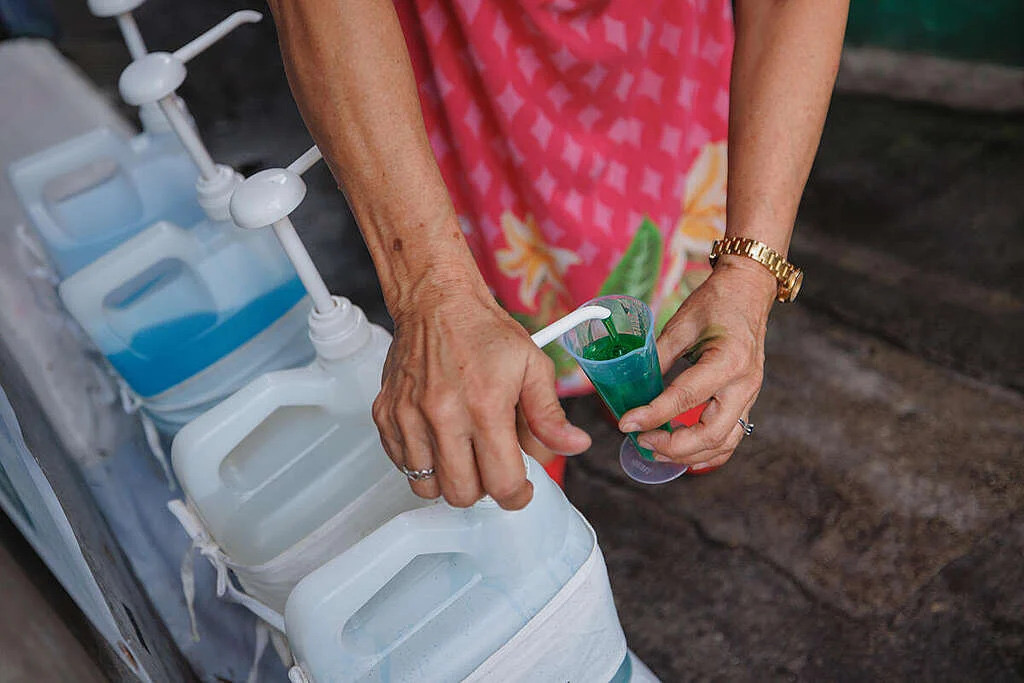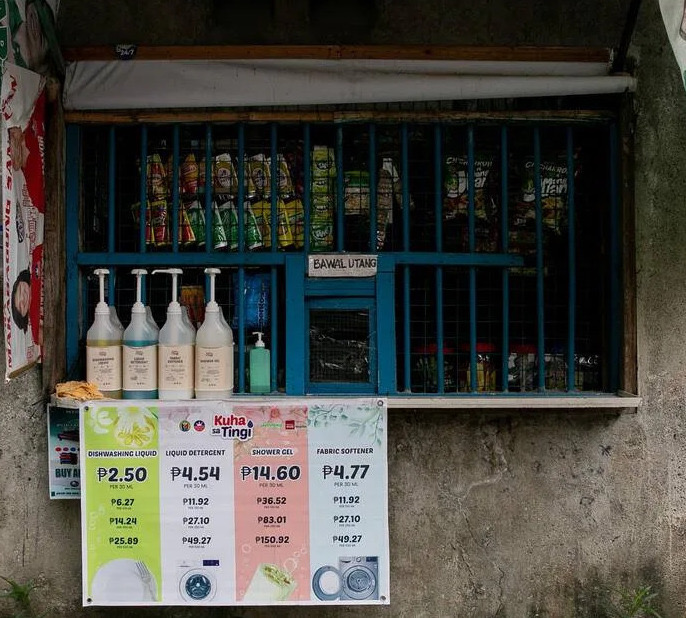
Earth Day this year is calling for a plastic-free planet. Environmentalists have been sounding this alarm to society like a broken record, yet to this day, we haven't fully heeded their call, as plastics continue to choke our waterways and marine life.
Filipino neighborhoods have several sari-sari stores, which are common in local communities and low- and middle-income households. These stores house basic necessities mostly packaged in single-use sachets, which inadvertently led to the "tingi" culture or buying in piecemeal amounts. If you run out of dish soap, a short run to Aling Tesa’s store is a quick fix.
But did you know you can save more cash while supporting sustainability using refill systems? In helping reduce single-use plastics, the spotlight falls on community-based refill hubs, where buyers bring their own reusable containers to refill basic cleaning products. The initiative also converts sari-sari stores into said hubs.

Unsung heroes of sustainability
Refill stores allow consumers to buy as little or as much needed cleaning essentials, including dishwashing liquid, multipurpose cleaner, and laundry detergent and conditioner.
These hubs offer a way for households to reduce their plastic waste. Their simple yet effective solution in helping curb single-use sachets works by requiring consumers to reuse and refill containers. Once empty, bring them back to the station and refill.
With refill hubs slowly hogging the limelight, they can be found in Quezon City and San Juan, and hopefully soon in other cities within neighborhoods. Apart from cleaning products, you can also replenish sugar, trail mix, chia seeds, and tea in zero-waste refill stores, including Tingi Station in Baguio, Croft Bulk Foods in Davao, and Maginhawa St. Eco Store.
Refill hubs can increase savings
Priced between ₱2.50 to ₱5.50 per 30 ml, refillable cleaning essentials can be cheaper compared to products packaged in single-use sachets.
The latest report from Greenpeace Philippines, the environmental organization leading the “Kuha sa Tingi” initiative, gathered data from refill hubs in San Juan and Quezon City. Consumers averaged 201 percent in savings with refills over sachets, while store owners marked a 15 percent profit increase.
“We are empowering our residents to embrace a sustainable lifestyle by choosing reusable options, creating a win-win solution that protects our environment, saves money for our residents, and increases income for store owners,” said QC Mayor Joy Belmonte.
Refill hubs have redefined the Filipino “tingi” habit by retaining the affordable per-piece concept while prohibiting plastics. As more sari-sari stores are converted into refill stations, it’s our duty, not just as consumers but as allies of the planet, to support sustainable initiatives; all you need is a few coins, a reusable bottle, and the heart to help our only home